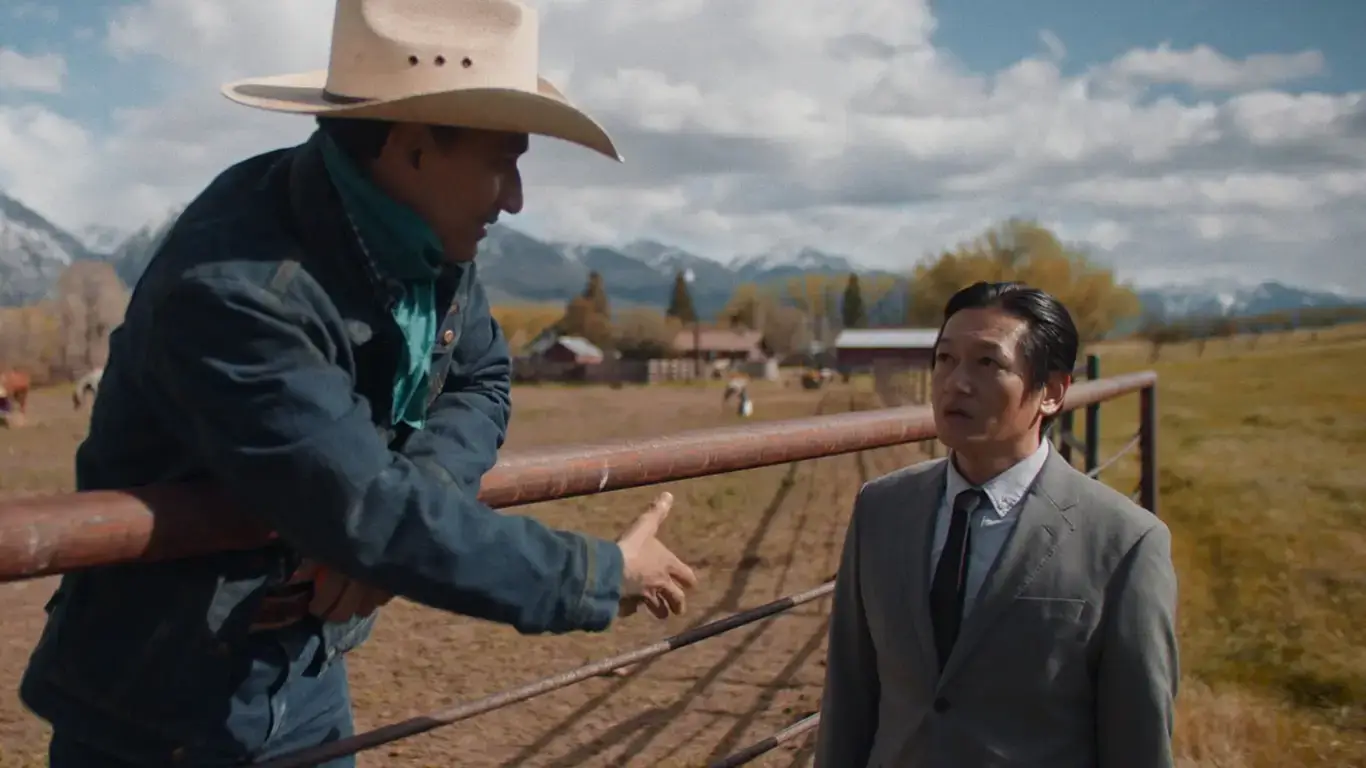At the beginning of Tokyo Cowboy, we meet Japanese professionals Hideki (Arata Iura) and Keiko (Ayako Fujitani) as their firm acquires a Tokyo-based chocolatier. Experts at compartmentalizing, Keiko and Hideki are a couple while Keiko acts as Hideki’s superior. The two are planning a bright future in Tokyo, looking for homes to raise a family in while maintaining the strictest level of professionalism on the job. All seems fine until Hideki proposes that he take a trip to one of the company’s financial liabilities in Montana to assess its condition. What Hideki finds in Big Sky Country is a lot more than fiscal solvency. The tightly wound professional goes on a charming sojourn that shifts his entire perspective. I know what you are thinking. We have seen this movie a million times. Yet director Marc Marriott surprises with a lyrical film that focuses more on the charms of human nature. With a kindhearted screenplay from Dave Boyle& Ayako Fujitani Tokyo Cowboy is a breezy character piece about self-discovery in the Wild West that is undeniably disarming.
Hideki gets to the Lazy River Ranch with his partner, Wada (Jun Kunimura), and the two immediately meet rancher Peg (Robin Weigert) and her ranch hand Javier (Goya Robles). The businessman gamely tries to connect with the team at the ranch during a bland presentation of the parent company, but it does nothing to build a bridge. Wada (Jun Kunimura) suggests a night at the bar with the team and is sent to the hospital after a tangle with the mechanical bull. This leaves Hideki in charge of navigating a strange new business climate and a culture totally alien to him. Will Hideki find the value in the ranch? Will he be able to connect with the locals?
With this seemingly bland premise, writers Boyle and Fujitani skip the easy jokes of cultural disconnect. They instead focus on the well-meaning efforts between the two cultures to connect and the humanity that surfaces in the process. This is paired with a beautiful performance from Iura as Hideki. We aren’t allowed to assume that any of the characters have cruel motives. We are invited to observe their good nature. Hideki isn’t written as a rigid businessman bereft of nuance. Instead, he just shows up to the ranch in a suit because, well, that’s what he knows. He is keenly observant and open to change. The surprise however is what changes in him.
Chad Cannon‘s score captures the surreal allure of cowboy life through the eyes of a Japanese businessman. Meanwhile, Oscar Ignacio Jiménez captures the vast beauty of Montana with his beautiful photography. Tokyo Cowboy is a big deep breath of fresh air in that it tells a familiar story in such a beautiful and fresh way. I did not expect to like the film as much as I did, much like Hideki never anticipated what was in store for him at a sleepy ranch in Montana. Yet, here we are. Give this one a chance. Take the trip. You will be pleasantly surprised.
Tokyo Cowboy – 8/10


